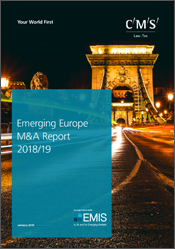BY Richard Summerfield
Swiss healthcare company Roche has agreed to acquire US-based gene therapy specialist Spark Therapeutics for $4.3bn.
The deal will see Roche pay $114.50 per share in an all-cash transaction, a premium of approximately 122 percent to Spark Therapeutics’ closing price on 22 February 2019 and a premium of approximately 19 percent to the company’s 52 week high share price on 9 July 2018. The deal is expected to close in the second quarter of 2019.
“Spark Therapeutics’ proven expertise in the entire gene therapy value chain may offer important new opportunities for the treatment of serious diseases,” said Severin Schwan, chief executive of Roche. “In particular, Spark Therapeutics’ haemophilia A programme could become a new therapeutic option for people living with this disease. We are also excited to continue the investments in Spark Therapeutics’ broad product portfolio and commitment to Philadelphia as a center of excellence.”
“As the only biotechnology company that has successfully commercialised a gene therapy for a genetic disease in the US, we have built unmatched competencies in the discovery, development and delivery of genetic medicines. But the needs of patients and families living with genetic diseases are immediate and their needs vast,” said Jeffrey D. Marrazzo, chief executive of Spark Therapeutics. “With its worldwide reach and extensive resources, Roche will help us accelerate the development of more gene therapies for more patients for more diseases and further expedite our vision of a world where no life is limited by genetic disease.”
For Roche, the addition of Spark will be critical as it loses the patent of its $21bn a year trio of cancer medicines Rituxan, Herceptin and Avastin. Going forward, biosimilars of these treatments will provide stiff competition for the company in both Europe and North America. The deal is also part of Roche’s pivot away from cancer treatments, an area in which the company has been the world’s largest player.
Loss-making Spark, the only biotech that has successfully commercialised a gene therapy for a genetic disease in the US, had $51.6m in revenue in the first nine months of 2018 from Luxturna and also had income from a deal with Pfizer, which it is partnering with on another gene therapy for haemophilia B.
News: Roche 'steps up' for gene therapy with $4.3 billion Spark bet


